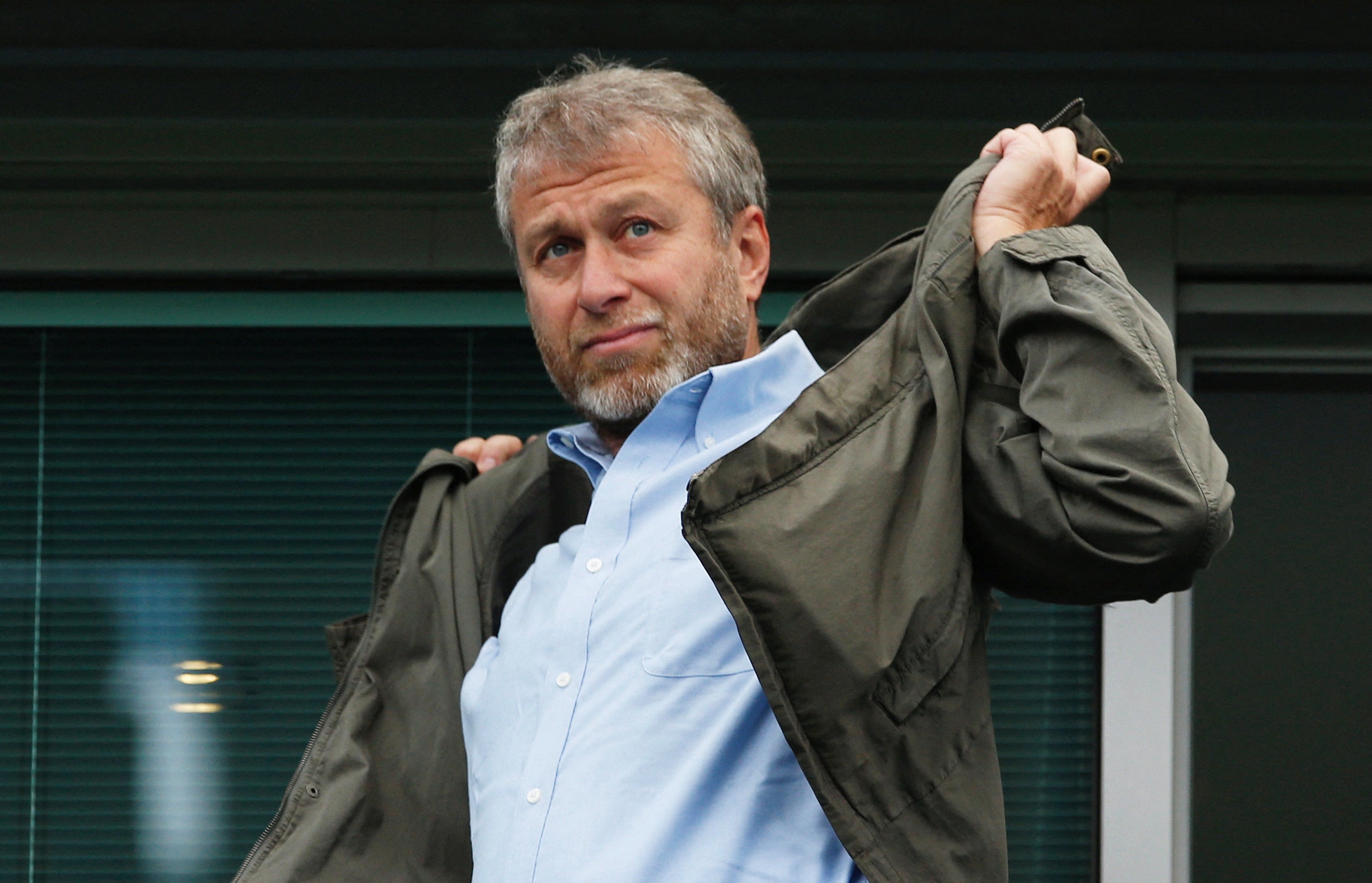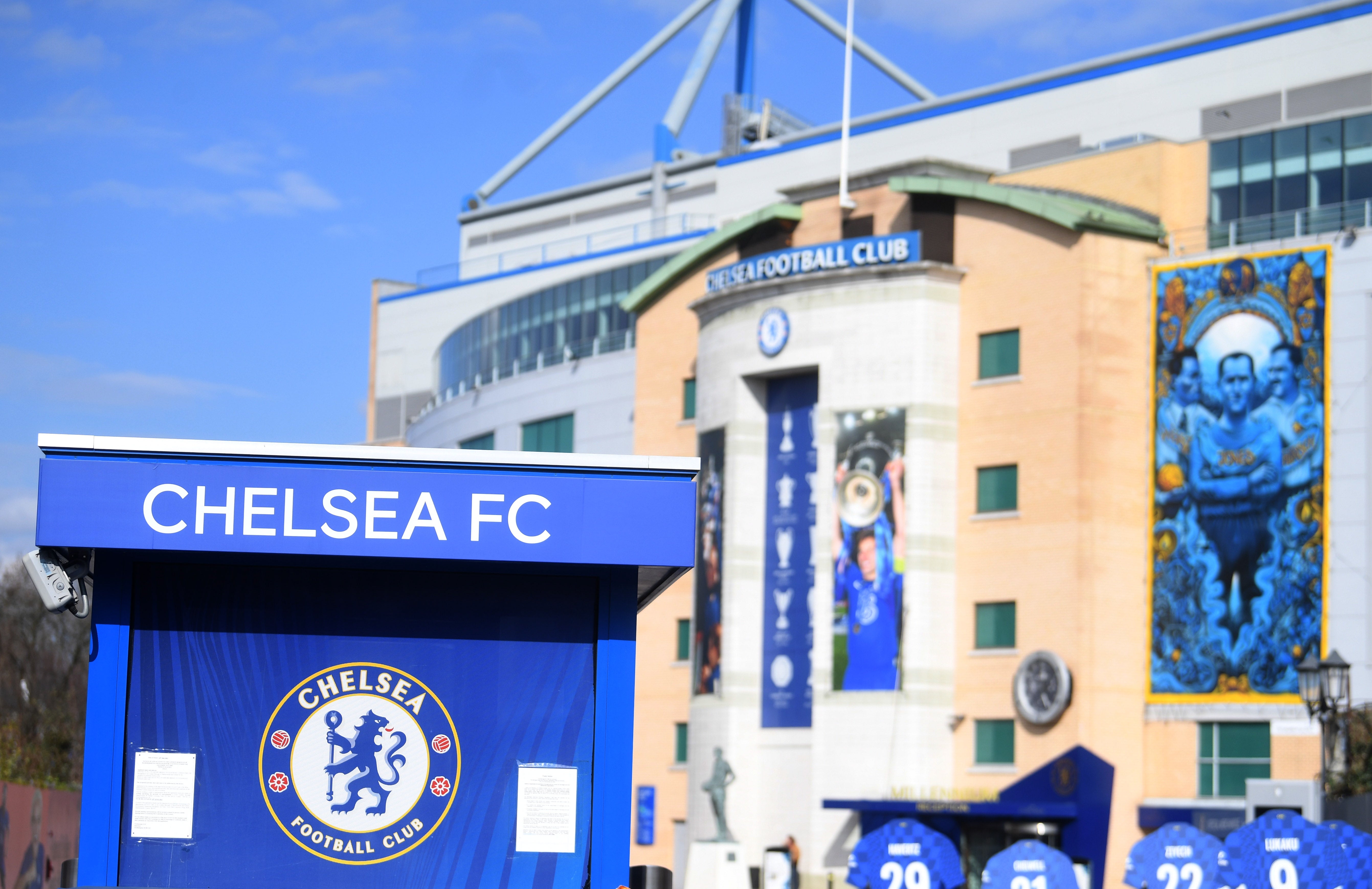Football must learn a lesson from Roman Abramovich and Chelsea
The Blues’ oligarch owner is being forced out of football but it should not have taken a war to make the game do some soul-searching, writes Tony Evans


Your support helps us to tell the story
From reproductive rights to climate change to Big Tech, The Independent is on the ground when the story is developing. Whether it's investigating the financials of Elon Musk's pro-Trump PAC or producing our latest documentary, 'The A Word', which shines a light on the American women fighting for reproductive rights, we know how important it is to parse out the facts from the messaging.
At such a critical moment in US history, we need reporters on the ground. Your donation allows us to keep sending journalists to speak to both sides of the story.
The Independent is trusted by Americans across the entire political spectrum. And unlike many other quality news outlets, we choose not to lock Americans out of our reporting and analysis with paywalls. We believe quality journalism should be available to everyone, paid for by those who can afford it.
Your support makes all the difference.There is always a danger when you dance with the devil. Chelsea FC supporters are realising the truth of that maxim now.
For 19 years they felt like they won the lottery at Stamford Bridge. When Roman Abramovich paid £60m for the club it changed the nature of the game in England. Rival teams and fans hated Chelsea’s new-found wealth. Yet many of them hoped that a similar sugar daddy would turn up on their doorstep.
Abramovich’s arrival skewed the way English football operated. Manchester United and Liverpool ended up with leveraged buyouts because they were too desperate to look beyond the facade of those purporting to invest in their clubs. The Premier League stood by and did nothing. Manchester City hit the jackpot and, as recently as last year, Newcastle United supporters celebrated becoming the “richest club in the world”, courtesy of questionable Saudi Arabian money.
Richard Scudamore, the former chief executive of the Premier League, a man who brought so much wealth to the top flight, waved away concerns about the dangers implicit in the new financial landscape. His stance was that the market would sort things out. It never did. Things just got more out of control.
There was always a concern about what might happen to Chelsea if Abramovich got bored and pulled out his cash. This was, after all, the club Ken Bates paid £1 for in 1982. Bates corrects those who say he bought the club. “I acquired the debts for a quid,” he always says. The Bridge has experienced perilous days before. The successes of the past two decades have been subsidised by the Russian owner. Until Vladimir Putin invaded Ukraine, it looked like this might have gone on forever.
That was impossible. The reckoning had to come at some point. Abramovich famously inflated the transfer market in the mid-2000s but the entity that he brought the most artificial value to is the club. Chelsea, even as European and world champions, are not worth anywhere near the £3bn the oligarch was aiming to recoup before the government sanctioned the 55-year-old. Now it is a distressed asset.

This is an opportunity. The people who value the club most are the fans. Sometimes it is easy to forget that Chelsea are not the creation of post-Soviet Muscovite excess. The club has a long and fascinating history. Those celebrating Stamford Bridge’s downfall should take stock. This is a morality tale for all of football to consider, not just a calamity in west London.
Of course, Chelsea are a sideshow to the nightmare in Ukraine, almost insignificant collateral damage to the real tragedy unfolding in eastern Europe. It is, however, possible to be concerned about a football club’s future at the same time as being horrified by the human toll created by the Russian invasion.
Chelsea are now in the hands of a government that has proved itself almost completely untrustworthy. Boris Johnson’s regime has frequently used football as a political tool – from Marcus Rashford’s efforts to combat child hunger to Johnson’s attempt to claim credit for quashing the European Super League plans. The authorities are right to sanction Abramovich but what took them so long?
Handing Chelsea off to become another rich man’s plaything should not be on the agenda. Nor should a cheap leveraged sale be considered. Tracey Crouch’s fan-led review of football governance was a rather lukewarm mishmash of ideas but Abramovich’s situation offers the chance to revisit some of the issues addressed in the review. The questions surrounding ownership of clubs is central to the future of the game. Even the most globalised team is at heart a community asset – yes, even Chelsea. They need to be protected. Even from owners who look like they are smothering them with love (and cash), like Abramovich.
In the end, what will the oligarch leave behind? Lots of memories of victories and trophies, to be sure, but little else of note. At least City’s owners have created a legacy in Manchester with the regeneration around the Etihad campus. That provides an element of mitigation to the damage Abu Dhabi has done to the competitive nature of the game.
The fit and proper tests need to be changed beyond recognition. Given the global instability, is it sensible or desirable for football clubs to be arms of Gulf states or the toy of a dictator’s facilitator?
Abramovich is gone and good riddance. The sooner Putin is ousted and the conflict ended the better. It should not have taken a war to force the game to do some soul-searching, though.
City and Newcastle are still dancing with the devil. The suspicion remains that the game will fall into the arms of any suitor who flashes a few quid in its direction. Football must learn a lesson from Abramovich and Chelsea.




Join our commenting forum
Join thought-provoking conversations, follow other Independent readers and see their replies
Comments